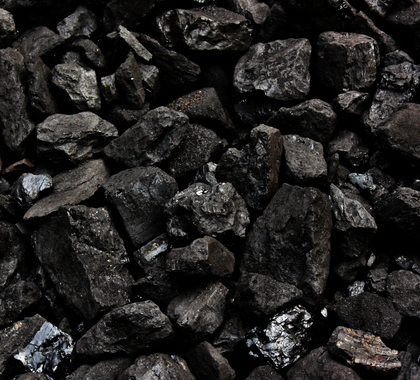The U.S. Environmental Protection Agency (EPA) has issued a new rule on acid gas emissions from a few small power plants that reduce waste left behind from mining operations by burning it to produce electricity.
The new rule limits the reach of the 2012 Mercury and Air Toxics Standards (MATS) to allow several small power plants in Pennsylvania and West Virginia that burn coal refuse as fuel to continue operating. The power plants covered by the new standard all burn low-quality, high-sulfur, coal waste abandoned from years of mining and electricity production in the region.
Under the Obama-era MATS standards, coal refuse plants were being forced to close because they were unable to meet national acid gas hazardous air pollutant emissions standards. EPA’s April 9 rule creates a subcategory unique to such plants, applying less stringent emission standards for them.
Reducing Coal Waste
The Anthracite Region Independent Power Producers Association reports more than 5,000 abandoned mines were never reclaimed in Pennsylvania, with thousands more unreclaimed mines existing in West Virginia, leaving more than eight billion cubic yards of waste.
Burning coal refuse to produce energy became economically viable with the passage of the 1978 Public Utilities Regulatory Act, which moved to diversify the sources of electric power in the United States, in part by allowing the use of alternative sources of fuel, including burning coal refuse.
Recognizing more than 212 million tons of coal refuse have been removed in Pennsylvania alone since 1987, in 2016 Pennsylvania enacted the Coal Refuse Energy and Reclamation Tax Credit, providing a $4 per ton tax credit for coal refuse used to produce energy. The law was intended to keep coal refuse plants operating, saving local jobs and continuing to remove mine waste from the environment, in an increasingly competitive energy market in which natural gas is cheap and governments routinely subsidize renewable power sources.
In Pennsylvania’s proposal to join the Regional Greenhouse Gas Initiative, it has established an exemption for emissions from coal refuse power plants to allow them to continue to operate.
‘Win, Win … Corrective Action’
This rule change was about protecting jobs, the environment, and domestic energy security, the EPA states in its press release announcing the new MATS subcategory.
“Today, the U.S. Environmental Protection Agency is taking corrective action to provide stability in the Pennsylvania and West Virginia economies,” said EPA’s press release. “These coal-refuse power plants are an important source of reliable energy, a key economic driver in the rural communities where they are located, and a proven method for turning waste into a usable source of power while at the same time remediating a longstanding environmental threat.
“By taking this action, EPA is addressing a matter left unresolved by the last administration that threatened to put the coal-refuse industry and the surrounding communities out of business,” EPA said.
EPA’s action solves a problem created by the Obama administration’s overly broad MATS rule, said EPA Administrator Andrew Wheeler in the agency’s statement.
“While fixing this technical issue proved too complex or insignificant for the Obama-Biden Administration, President Trump has made clear that using environmental regulations to put our energy industry or rural communities out of business is not acceptable,” Wheeler said. “By establishing this new sub-category, EPA has put in place achievable emissions standards that will save hundreds of jobs and preserve coal-refuse recycling operations that have become an important part of local environmental goals.
“Balancing environmental progress alongside economic prosperity is not only a win-win, but also how the Clean Air Act was designed to work,” said Wheeler.
‘Affordable Energy for American Families’
Federal and state officials from the affected region were quick to praise the Trump administration’s decision to help keep the coal refuse plants operating.
EPA’s decision is good for the economy and the nation’s energy security, said Rep. John Joyce (R-PA), in a statement.
“Pennsylvania’s energy economy relies on clean coal, and I appreciate the EPA’s action to overturn these Obama-era regulations and support our local community, helping Pennsylvania families and provide relief for our local coal miners,” said Joyce. “We know that America’s energy grid security is dependent on a wide range of sources, and the coronavirus crisis has reinforced the importance of domestic energy production. The EPA is taking an important step to strengthen America’s energy independence.”
While helping keep energy prices low, EPA’s new rule also promotes continued environmental restoration, said Rep. Mike Kelly (R-PA) in a statement.
“Thank you to the EPA for establishing a new emissions standard for coal-refuse power plants, which will help us turn more waste into affordable energy for American families,” Kelly said. “Making it easier to remove coal refuse from Pennsylvania communities will not only produce energy, however.
“It will also allow landowners to create more parks, nature areas, and address other community needs,” said Kelly. “Once again, the Trump administration took decisive action to end the Obama-era war on coal, and in doing so is helping coal country, and America, in more ways than one.”
‘An Environmental Win’
EPA’s press release notes the new emission standards for this limited number of power plants will not increase air pollution and, historically, the land reclaimed after coal refuse is removed for use has often been redeveloped into parks, nature areas and trails, or put to back into commercial or public use.
Generating energy with coal waste solves a longstanding environmental problem, said Austin Caperton, cabinet secretary with West Virginia’s Department of Environmental Protection in a statement.
“This action by the administration exemplifies putting into action things that actually make environmental sense,” said Caperton. “By creating this subcategory, the EPA has recognized that we can turn an environmental problem, old coal refuse piles, into an environmental win.
“While not increasing emissions at these small generating plants, we will create low-cost energy and place unusable material in an environmentally sound and permitted area. Imagine that,” Caperton said.
H. Sterling Burnett, Ph.D. ([email protected]) is a senior fellow at The Heartland Institute.
Official Connections
Rep. John Joyce (R-PA): https://johnjoyce.house.gov/; https://johnjoyce.house.gov/zip-code-lookup?form=/contact/email-me
Rep. Mike Kelly (R-PA): https://kelly.house.gov/; https://kelly.house.gov/contact-me/email-me





